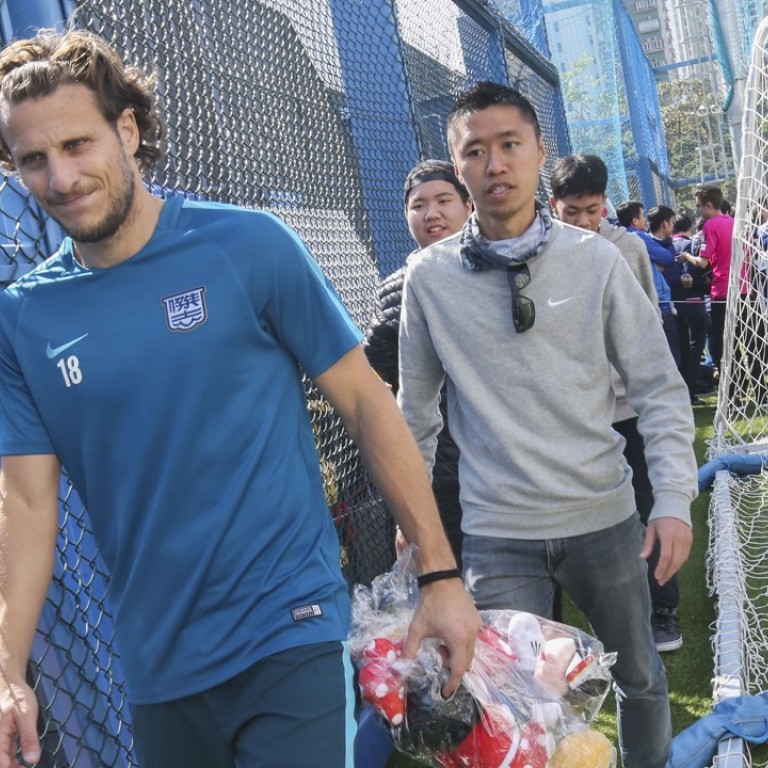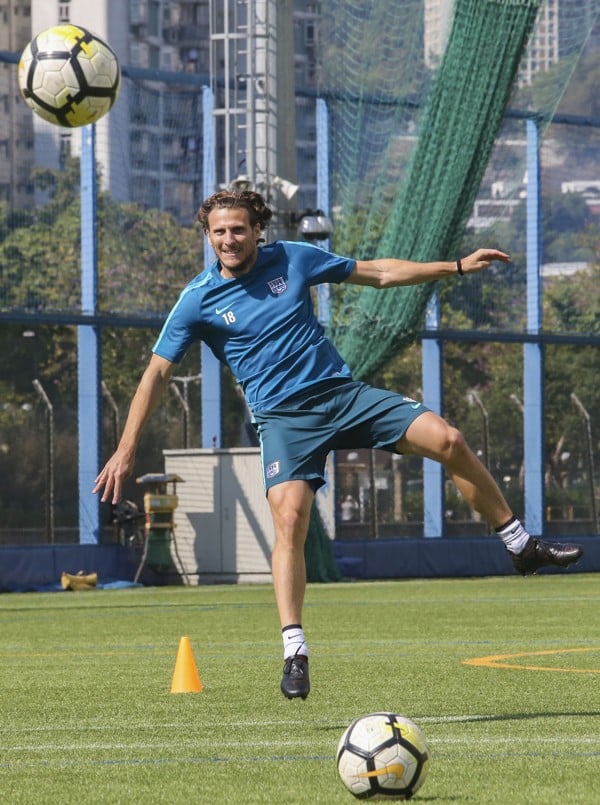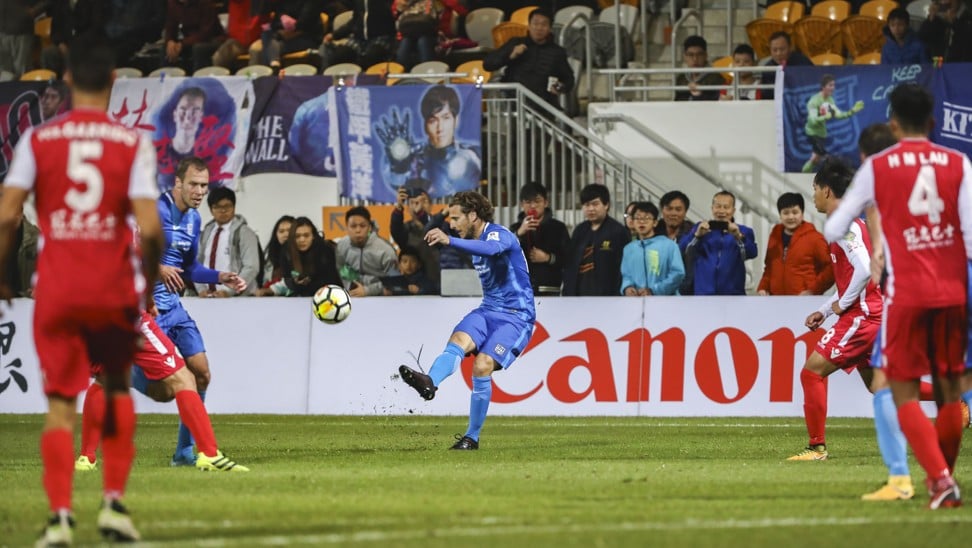
‘The world has become much smaller – players play everywhere now’: Diego Forlan on life as a globe-trotting maestro
The 38-year-old scored a brace for his new club Kitchee on Sunday proving that he’s far from finished as a professional, and he wants to enjoy it while he can
According to the English Professional Footballers Association, the average length of a footballer’s career is eight years. Forlan has gone well beyond that.
“My motivation for coming to Hong Kong was that I wanted to play for 20 years as a professional footballer,” explains Forlan. “I had a good offer and had no hesitation in accepting it.”
There is still a smattering of 38-year-old outfield players in Europe’s leading leagues: Gareth McAuley at West Brom, Sergio Mora at Getafe, Aaron Hughes at Hearts and the Chievo forward Sergio Pellissier.
Roma legend Francesco Totti retired at 40 last year, while striker Claudio Pizarro is still playing Bundesliga football at 39. Xavi Hernandez, six months younger than Forlan, turns out for El Sadd in Qatar.
Forlan's freekick pic.twitter.com/sDhbiFjQp8— BobbyBrown (@RabonaMike) January 28, 2018
What makes Forlan unique is that he’s now in his ninth country – and he’s played at the top-level in all of them. Starting out in Argentina with Independiente, he moved to England with Manchester United, then to Spain with Villarreal and Atletico Madrid. A spell in Italy with European champions Inter Milan followed before time at another Inter, the Brazilian giants from Porto Alegre. Time in Japan with Cerezo Osaka, Uruguay with his beloved Penarol and India with Mumbai City meant he carried on playing when many of his teammates were long retired.
Forlan’s motivations are varied and reflect his intelligence and curiosity about the world.

Forlan speaks five languages and can also understand “some Japanese”.
“I’ve always been quite good with languages,” laughs the man who helped Cristiano Ronaldo integrate at Manchester United as he spoke Portuguese. “Languages help, but football has changed a lot since I started playing. There were players who’d never have thought of coming to Asia, but the world has become much smaller. Players from everywhere now play everywhere. Better communications mean I can stay in touch with family very easily.”
By that he means his extended family who live in Uruguay, since his wife Paz and their two boys have come with him to Hong Kong.

Forlan’s fortunate. He’s got a name, he’s a striker who has shone for huge clubs and, at his peak, he was the leading goalscorer and player of the 2010 World Cup finals. He’s looked after himself; he had a private trainer long before it became the norm for top-level players.
He’s also playing in an era of better diets – alcohol was a staple of many players in England until the early ’90s – while advances in sports science mean players can go on, especially if they’re not reliant on one of the first attributes to diminish – speed. Injuries are better treated. A cruciate injury would end a career in the 1980s; now it’s nine months out.
Forlan has also retained a love for football passed down through the family, the only one which has three generations of players all to be crowned South American champions.
Some players look forward to their retirement. The former Manchester United midfielder Anderson is 29 and wants to do “two or three more years before relaxing with my family.” Other players drop down the divisions because they love playing – or because they want to keep on earning money for the only job they know.
Others, from Marco van Basten to Colin Bell, Brian Clough to Pierluigi Casiraghi, were highly unfortunate and saw their careers prematurely curtailed by serious injury. Sometimes players have just had enough. Andy Cole found himself in a team of kids at Nottingham Forest and decided to call it a day at 37.
Yet the decision to quit can be reversed. Paul Scholes was brought out of retirement by Sir Alex Ferguson at 38 and won another Premier League title. But Forlan has resisted hanging up his boots. His contract with league leaders Kitchee runs until May, when he’ll take stock and see what the future holds, satisfying his wanderlust and love for playing while he still can.

